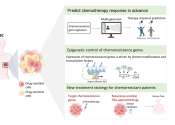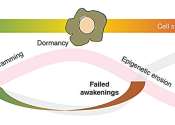Characterization of mutational 'coldspots' in the cancer genome
Mutations are the changes in the DNA that gradually occur in human cells as they replicate, and the organism grows and ages. Some of these changes, particularly when they occur in genes, can be instrumental during the development ...
Apr 10, 2024
0
0









